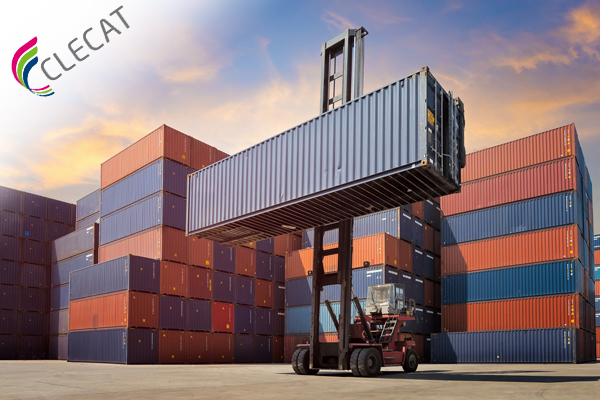

Demurrage and Detention Charging during COVID-19 crisis are the focus of a paper issued today by CLECAT. The paper provides recommendations for a more transparent process with regards to the determination of detention and demurrage practices in container shipping, highlighting issues Freight Forwarders have encountered recently with these charges, including references to the recent European court cases.
Commenting on the paper, Ms Nicolette van der Jagt, Director General of CLECAT, noted:
‘Over the last couple of months, we have collected the experiences and concerns of our members with regards to detention and demurrage charges. Today, with the present global crisis caused by the COVID-19 pandemic, these concerns become even more pressing. Whereas our priority remains to ensure that freight keeps moving and containers reach their destination, we believe that all parties in the global maritime supply chain have a common interest to support the overall functioning of the chain.'
'Our members are particularly concerned about the impact the different national rules will have on the period of time containers will need to stay in ports before import or export. Above all, we need to keep cargo moving to reach citizens, but in view of restrictions and delays caused by the current crisis, the burden needs to be shared amongst all the parties. As such, CLECAT underlines that charging unreasonable amounts of demurrage and detention should not constitute a revenue model for the shipping lines.’
The recent announcements of shipping lines to insist on current tariffs (in Europe), whilst anticipating a slow down in the supply chains, without any offer of extended free times and review of tariffs, raises concerns among the freight forwarders. Equally, the proposal of carriers to ‘offer a variety of solutions to avoid significant detention & demurrage exposure’ reconfirms the suspicion that carriers are using their position within integrated logistics groups to undercut forwarders by charging D&D to merchants who arrange transport in merchant haulage, but waive the charge for merchants for whom they arrange the transport in carrier haulage. In doing so, the shipping lines are discouraging merchant haulage, thereby reducing competition and choice. Clearly, marketplaces become less efficient when entities have the power to levy unreasonable charges on their competition, and no matter whether the containers move in merchant haulage or in carrier haulage there should be equal and fair treatment of customers.
CLECAT is following with interest the recent US FMC guidance, arguing that demurrage and detention charges are only valuable when they work, i.e. when they are applied in ways that incentivise the merchant to move cargo promptly from ports and marine terminals. Ms van der Jagt concluded: ‘While we appreciate that demurrage and detention charges are an important tool for the shipping lines to ensure the efficient use of their containers, this must be done in a fair and reasonable manner. Demurrage and detention charges must serve their purpose to incentivise cargo interest to move containers, and merchants should not be subjected to such charges if the pickup or return of a container is delayed due to factors beyond their control. This is particularly acute in the wake of the current COVID-19 crisis.’
The full paper can be downloaded through the CLECAT website via this link.
For more information:
Mrs Nicolette van der Jagt
Director General
CLECAT
Coronavirus section on IIFA website
IIFA has dedicated a section of its website to Freight Industry relevant Coronavirus updates. This information can be found via the link below:
https://www.iifa.ie/coronavirus/ (page no longer live)